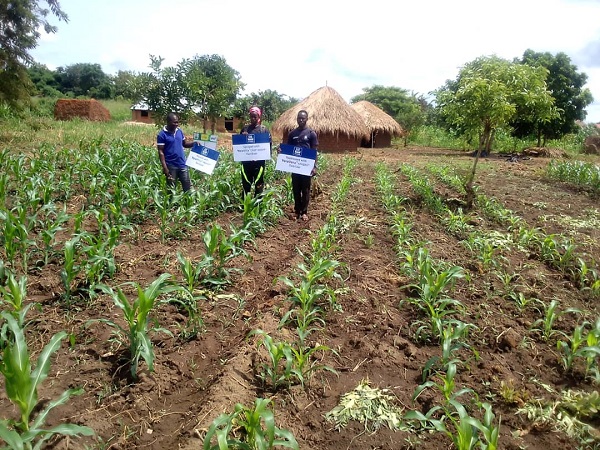GULU-A joint initiative by two fertiliser-producing companies is helping farmers in Uganda to appreciate the importance of using fertilisers to boost farm yields.
Yara Fertilizer Company and Export Trading Group-ETG have collaborated to supply 20,000 metric tons of fertilisers at subsidised rates to 100,000 organised smallholder farmers across the country.
The project is targeting four security crops grown around the country that include maize, beans, rice, and Irish potatoes, according to Joel Kakaire, the country manager at African Fertiliser and Agribusiness partnership-AFAP, a nongovernmental organisation overseeing the venture.
Kakaire said, “The project will run for the duration of the current planting season but is likely to run up to the first planting season of next year (2023) if the target is not met.”
Kakaire said that the project is being funded at US$ 11 million by Rabo Bank, DFCU’s mother bank, and the two fertilizer-manufacturing companies.
“8,000 metric tons of fertilizer have already been moved. We want to show farmers that you can get better yield when you apply fertiliser to your crops,” he said.
Through the initiative, several demonstration farms have been set up all over the country to show farmers how to properly apply fertiliser.
“Some people think fertilisers are bad because they don’t know how to apply them. Sometimes the fertiliser is applied too close to the crop or too much is applied which is wrong,” Kakaire said.
James Ogwal, a market promoter at Yara Fertilizer Company said that demand for fertilisers has gone up since they established the demonstration farms in late March to early April.
“People used to believe that their soils were fertile but through the demonstration farms, they have been able to realise that the soils are tired and need boosting,” Ogwal said.
Poor crop yields experienced in the first planting season mainly due to poor weather, have led to a food crisis in Acholi Sub-region.
A report released recently by Gulu district local government indicates that at least 110,000 [about 40 percent] of Gulu district residents are in severe food shortage with many struggling to afford two meals a day.
https://thecooperator.news/mbarara-university-students-develop-organic-fertiliser/
Buy your copy of thecooperator magazine from one of our country-wide vending points or an e-copy on emag.thecooperator.news
